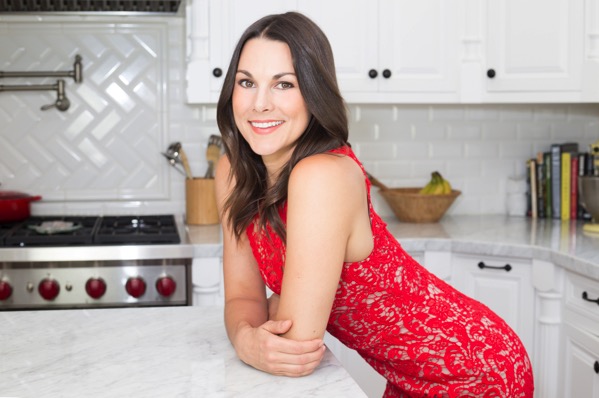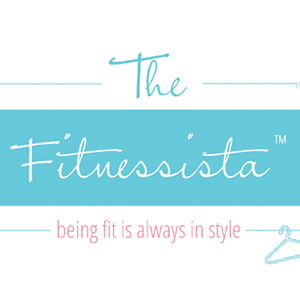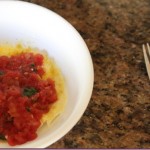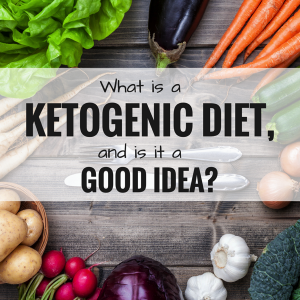006: Diet Myths with Whitney E. RD
I’m so excited for today’s episode because I’m chatting Diet Myths with Whitney E. RD!
We are CONSTANTLY inundated with conflicting nutrition information in the media. Something that was once good for you can instantly be dubbed dangerous, and it can be confusing and overwhelming to sort through all of the information. Thankfully, we have amazing RDs like Whitney working to dispel diet myths and share science-backed nutrition tips with their followers.
In this episode, we talk about some of the commonly-demonized foods and hot nutrition topics:
-Gluten
-Soy
-GMOs
-The great protein debate, and
-Tips for creating a plant-based lifestyle
I hope that you’ll check it out. There’s a ton of value and lots of applicable tips in this episode. If you enjoyed it, please throw a 5-star rating or review my way! <3
A little bit about Whitney:
Whitney English Tabaie is a Registered Dietitian Nutritionist, Certified Personal Trainer, and founder of the website/YouTube channel, Whitney E. RD. Whitney’s mission is to help readers make educated decisions about the food they eat by providing evidence-based information on popular nutrition topics and sharing healthy original recipes that fit her “Predominantly Plant-Based” nutrition philosophy. Whitney is also the co-creator of Plant-Based Juniors, a platform helping educate and inspire parents looking to raise predominantly plant-based children. She has been featured on outlets like Good Day LA, Bon Appetit, People, Today’s Dietitian, Buzzfeed, Huff Post, Men’s Health, Shape, Reader’s Digest, and many more. When she isn’t whipping up healthy meals in “Whit’s Kitch,” she can be found soaking up the Los Angeles sun with her husband, newborn son Caleb, and pup, Mr. Chow.
Here are two of the videos we discuss in today’s episode:
The truth about soy and cancer
Find Whitney on her blog, Facebook, Instagram, and YouTube.
You can listen and subscribe to the podcast on iTunes, Stitcher, and Google Play.
Thank you so much for checking it out and for all of your amazing support with the podcast.
xoxo
Gina















I listened in this morning and while I really enjoyed the conversation and Whitney’s perspectives on health and nutrition, I had a tough time. Two episodes ago, I also really enjoyed your interview with Patrick Flynn, where I heard that soy, gluten, and dairy, are inflammatory and women should reduce their consumption of foods containing those ingredients. This week you’ve got Whitney saying there’s nothing wrong with gluten and people should eat more soy, especially young females.
I understand that the podcast is a space to share and learn about different experts/specialists thoughts and research in different areas, but it definitely felt overwhelming to get what I perceived as conflicting suggestions. I also understand that nutrition is highly personalized and I think the last episode with Emily Field made that clear, but it is still difficult to dissect the information and discern what might have a beneficial application in my life when there’s all of the “soy is inflammatory and gives you cancer…no wait, soy is amazing and prevents cancer” stuff. To a certain extent, that’s the nature of the beast because every body is different and reacts and thrives on different fuels. It’s just difficult to listen and think about implementing changes or modifications to the way I eat and move when I feel like no one agrees with each other on some basic things.
hi monica,
thank you so much for listening! i totally know what you mean, because it’s happened to me a few times while listening to podcasts. (especially in some episodes of the model health show, which is my very fave. he’s featured so many experts and they don’t always agree on things.)
for me personally, when i find that two health experts that i respect don’t agree on a certain topic (in this case: foods), i use moderation.
for the most part, i don’t eat a ton of gluten, but if i have some here and there i know it’s not going to hurt me. if it is inflammatory, constant long-term inflammation would do more damage than my weekly donut or pieces of pizza. 😉
for soy, they both agree that tempeh is good for you, and that’s a regular part of my diet. i don’t eat a ton of tofu, but will have it here and there, and edamame with sushi. i think it’s important to look at how the soy is processed, too. i feel like organic tofu and edamame will be better for you than processed soy chicken nuggets.
as far as GMOs go, both dr. patrick flynn and whitney avoid them, so i will continue to avoid them, too. the limited research i’ve read (as whitney said, there’s not a ton and it’s all animal-based… but the results were enough for me to raise my eyebrows), indicate that it’s the right choice for me right now.
it’s easy to get stressed out when you get different information from different sources! i think moderation is key, and i also like to look at the freakonomics aspect of the equation. for example, other cultures who consume soy in their diets have less instances of cancer, but they also probably eat more plants, are less sedentary, and may experience less stress/inflammation in the body.
the types and quality of the foods we eat play a huge part in overall health, but they’re also a piece of a larger pie. stress management, sleep, movement, and hydration are so important, too.
thank you again for listening and taking the time to share your thoughts! i hope to feature a variety of experts on the show, and while they might not agree on everything, they’ll all have an amazing story to tell and tips to share. <3
xoxo
Monica, I felt the same way listening to this RD. I largely agreed with Dr Flynn and was almost yelling at my phone while listening to this episode. I appreciate having a wide variety of opinions but I’m glad to hear I wasn’t the only one frustrated by this episode. Thanks Gina for your insight on this issue.
Thanks so much for the thoughtful response and for explaining your approach! I appreciate the variety of people you’ve had on so far and their varying backgrounds and opinions, and I think you’ve done a wonderful job of making sure that their points come across clearly and that information and studies are accurately presented. I look forward to hearing from more people and about your personal experience 🙂
Hi! I usually listen to your podcast on Google music but for some reason the last two episodes aren’t on there. I’m not sure if it’s just me or a glitch 🙂
I’m having the same issue!
thank you so much for letting me know! we’re looking into it now
As I mentioned on a previous podcast comment section of yours, I LOVE the discussions on nutrition! I did note the discrepancy that Monica (commented above) pointed out yet understand that what each interviewee shares with you is out of your control and that no one person, professional or not, will have the end all be all say on conflicting issues in the nutrition world. With that said, keep ’em coming!
I’m loving your new podcast as well! Can you share what app you use to track your macros?
I have loved following Whitney over the past year or so. She is a wealth of knowledge. I can’t wait to listen.
I only listened to the first ten minutes or so but I wish more people in the field would recognize that there are plenty of valid reasons to minimize wheat intake besides celiac’s. Many of us just feel better and manage our weight better with minimal baked goods and pastas in our diets, and most of today’s best diet advice recognizes that (including your own). And we get plenty of whole grains from rice, corn, quinoa and other grains. I guess it’s just semantics. If people said they were minimizing baked goods or white flour instead of gluten, who would balk?
I am loving your podcasts but I had the exact same reaction as Monica and pulled up the comments section to ask that very same question! It is so frustrating because the podcast with Whitney was supposed to make things clearer and dispel myths, but it just left me more confused (especially about soy, since she said it prevents cancer and young girls should have it as soon as possible, and Dr. Flynn said to be very careful with soy). I see your point about eating it in moderation, but if Dr. Flynn is correct and Whitney is incorrect then you really shouldn’t be consuming it, even in moderation. And if Whitney is correct and Dr. Flynn is incorrect, then it might not be very beneficial to young girls long term if they don’t get enough of it. Argh!
I think something that’s important – and that seems to be missing from the podcast – is that “experts” disagree when they rely on different evidence. And sometimes someone who frames themself as an expert isn’t relying on scientific evidence, but rather personal experience, which is subject to a lot of biases and judgment errors.
The interview with Dr. Flynn was frustrating to me because, while he does bring up some good points about the lack of good research on women’s hormones, he then veers into a whole bunch of assumptions and recommendations that aren’t based on any evidence at all, or that sometimes conflict with the scientific evidence that does exist. Not to mention the peddling of sexist tropes about both women and men that don’t seem to be based on anything but his own belief system.
That said, I’d love to see Gina (and other health influencers) push back on self-proclaimed experts and ask them what their evidence is for claims that they make, instead of framing them as all equally valid – because there’s not a whole lot of middle ground between “soy is hurting you” and “women should eat more soy!” and just accepting both views isn’t possible because two opposing views can’t be equally valid.
YES – totally agree with the last paragraph – well put!
thank you so much for your comment; i really appreciate your thoughts and feedback, and totally understand what you’re saying
another important point would be to know who’s funding which study. i’ve been wanting to dig into the “soy is now good for you” studies a bit and see about the funding because that creates another bias.
i don’t think there’s a lot of middle ground in the soy argument. but, i think that there are so many other factors that come into play for overall health and disease prevention than regularly eating soy or avoiding it. it’s also worth noting that dr. flynn and whitney have extremely different backgrounds; dr. flynn is based on alternative health, while registered dietitians are often on a more traditional medicine/government path if that makes sense. i’ve heard SO many natural-minded practitioners say to avoid gluten, dairy, and soy, but am not sure of their evidence. they’re definitely both people i respect and trust, and i enjoyed hearing their perspectives even though they don’t necessarily agree on everything.
I think, for what it’s worth, that I would love to hear you facilitate these conversations more. You can ask someone like Whitney “hey, I’ve spoken with alternative health practitioners and they’ve said that soy causes inflammation. How would you respond to that?” Or “I’ve heard that pro-soy studies might be biased because they’re funded by the soy industry, what do you think of that?” That makes it more of a conversation, and asks them to address confusion head-on and really clarify the points that they make. As a facilitator of those conversations, you really have the ability to ask the questions that the rest of us have. And as a reader/potential listener, that’s what I’d like to hear in my podcasts.
Luckily, finding info on funding should be pretty easy once you have the articles – researchers have to acknowledge funding sources and conflicts of interest in the article itself. Some articles are behind a paywall, but if you know someone at a university they should be able to help you get access. I’ll also say, as a researcher, that funding sources don’t automatically equal a bias. It definitely can, especially when industry interests are at play, but many organizations fund research studies because they think the questions are important, not because they’re looking for a particular set of questions. And bias is not just an issue in research on Western medicine – alternative health practitioners that sell books, nutrition or workout plans, etc. are very likely to be biased because they tend to interpret research in a way that reinforces their product. Just things to consider, from someone spends way too much time thinking about how people interpret and use research, haha.
i hope you know how much i appreciate all of this thoughtful feedback- thank you! yes, i will try harder to facilitate those types of discussions, especially when i have those questions myself. i’m just getting the hang of this, and am so thankful to those of you who are giving me ideas on how to improve the podcast.
thank you!!
Great no nonsense nutrition podcast! As always in that field I feel that balance is the key to healthy, and it should apply to soy and gluten : not too much but not demonized either. I found our journeys similar and I eat close to the diet described yet I am sometimes tempted to try something else without knowing the science behind it so it was a real pleasure to discover Emily Field (although I read about her experiment of the fast mimicking diet and I am not sure about that one…)
OUps….I mean Whitney E!